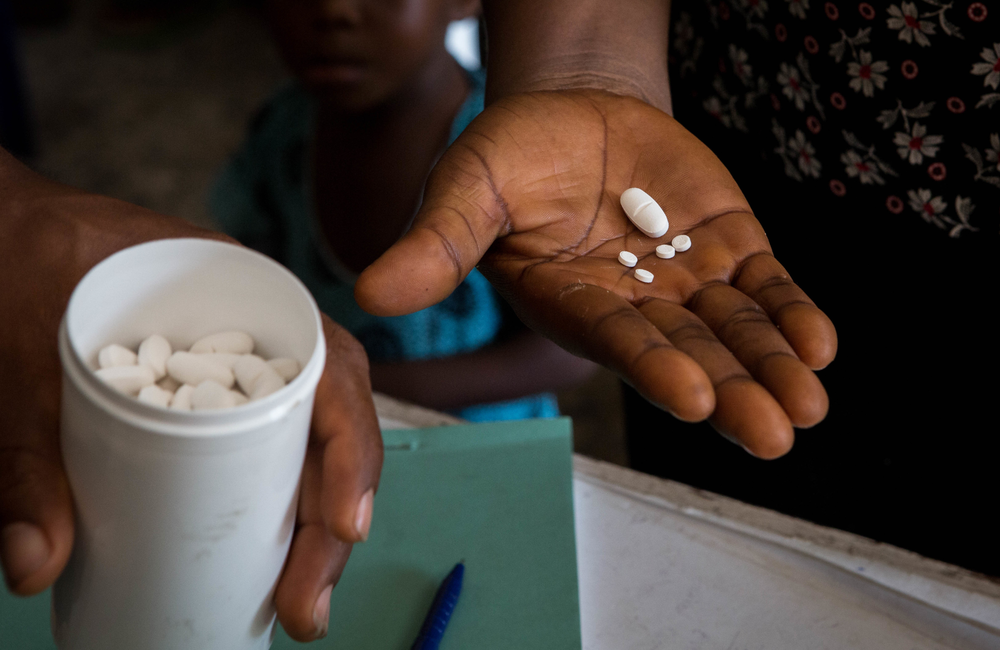Prime
Tanzania seeks self-sufficiency with local manufacture of ARVs

What you need to know:
- The decision is part of wider efforts to mitigate the impact of shifting international health funding priorities
Dar es Salaam. Tanzania is making a strategic push to secure pharmaceutical independence, with the government unveiling plans to revive Tanzania Pharmaceutical Industries (TPI) in Arusha to produce antiretroviral (ARV) drugs locally.
Presenting the Health ministry’s Sh1.61 trillion budget estimates for 2025/26 in Parliament in Dodoma on Monday, Health minister Jenista Mhagama said the move was part of wider efforts to mitigate the impact of shifting international health funding priorities.
Tanzania has for many years relied heavily on external support for HIV treatment, particularly through the US President’s Emergency Plan for Aids Relief (Pepfar).
However, recent funding cuts have disrupted HIV services across eastern and southern Africa, prompting Tanzania to rethink its dependence on foreign aid.
“This marks a significant step towards strengthening domestic investment in health product manufacturing,” said Ms Mhagama, noting that the Health ministry has already supported the establishment of ten new factories for medicines and medical devices.
“These factories will ensure the continued supply of therapeutic water, laboratory reagents, tablets and liquid medications, especially ARVs.”
To manage the transition caused by changes in international funding, the government allocated Sh202 billion between March and June 2025. Of that amount, Sh93.16 billion has already been used to procure ARVs, tuberculosis and malaria drugs.
TPI’s revival will also benefit from a portion of the Sh173.94 billion budget set aside for fighting malaria, tuberculosis, leprosy, HIV/Aids, hepatitis, and STIs—programmes that also focus on improving diagnostics and securing essential supplies.
While TPI’s resurgence is welcomed, its history includes controversy. In 2012, the factory faced legal challenges and public outcry over allegations of distributing substandard ARVs through the Medical Stores Department (MSD). The government now hopes to turn the page with improved oversight and a renewed mandate.
Medical Association of Tanzania (MAT) president Mugisha Nkoronko expressed strong support for the plan.
“MAT commends the government for taking this bold step to close the gap left by reduced US funding,” he said. “We look forward to seeing more local factories that not only meet national demand but also export to African markets, leveraging our port infrastructure,” he said.
The government’s push for local production aligns with a broader national strategy to enhance economic self-reliance amid changing donor policies.
During Monday’s parliamentary session, Prof Patrick Ndakidemi (Moshi Rural-CCM) sought to know how the government was preparing for reduced support from wealthier nations.
In response, Finance minister Mwigulu Nchemba said efforts were underway to increase domestic revenue to fund the national budget.
“The government will also continue encouraging private sector involvement in development financing through mechanisms such as public-private partnerships,” he added.
Beyond ARV production, the proposed health budget aims to strengthen the overall health system. The largest allocation—Sh309.51 billion—is designated for improving healthcare access and quality across all levels, from dispensaries to national referral hospitals.
The ministry plans to mainstream digital innovations, including Artificial Intelligence, to enhance service delivery. It also intends to revitalise the national health policy and service charter, and establish a new National Public Health Institute.
A further Sh166.01 billion is earmarked for combating both communicable and non-communicable diseases, while Sh123.93 billion will be invested in advanced medical procedures and medical tourism. Planned services include liver transplants, specialised urology and andrology, shoulder and elbow replacements, AI-assisted brain and spinal surgeries, and interventional neuro-radiology.
To address the shortage of skilled health workers, Sh80.38 billion has been allocated for workforce development. An additional Sh76.57 billion will be directed at reducing maternal and infant mortality.
The government has also committed Sh9.80 billion to the implementation of the Universal Health Insurance Act, aiming to ensure long-term sustainability in healthcare financing.
Other key allocations include Sh6.61 billion to strengthen mental health and rehabilitation services, and Sh937.29 million to expand traditional medicine integration from 14 to 21 regional referral hospitals.
With this renewed focus on domestic health investment, Tanzania aims to build a resilient, self-sufficient health sector capable of withstanding global funding shifts.





